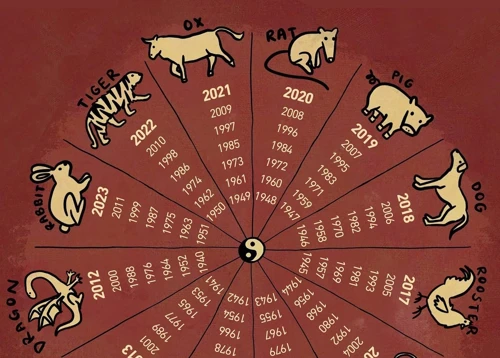Understanding The Different Types of Astrology: Western, Vedic, and Chinese
Astrology has a long and fascinating history, with different cultures developing their own unique systems of celestial interpretation. From the ancient Greeks to the people of India and China, astrology has played a significant role in understanding human behavior and predicting the future. In this article, we delve into the captivating world of Western, Vedic, and Chinese astrology, exploring their origins, fundamental concepts, and how they differ from one another. Discover the mysteries of the zodiac signs, the importance of birth charts, and the cosmic forces that shape our lives. By understanding the different types of astrology, you can gain profound insights into yourself and the world around you. So, let’s embark on a journey through time and space, and unravel the secrets of the stars.
Contents
- Overview of Astrology
- Western Astrology
- Vedic Astrology
- Chinese Astrology
- Comparing Western, Vedic, and Chinese Astrology
- Conclusion
-
Frequently Asked Questions
- What is astrology?
- How does astrology work?
- What are zodiac signs?
- What is the difference between Western and Vedic astrology?
- How does Chinese astrology differ from Western astrology?
- Can astrology predict the future?
- What are astrological houses?
- How can I determine my astrological compatibility?
- Is astrology a science?
- Can astrology help me make important life decisions?
- References
-
Frequently Asked Questions
- What is the difference between Western, Vedic, and Chinese astrology?
- How do Western astrologers determine zodiac signs?
- What is the significance of nakshatras in Vedic astrology?
- What are the Chinese zodiac animals?
- How do the Chinese five elements impact astrology?
- Can Western astrology and Vedic astrology be used together?
- What is the primary focus of Western astrology?
- How does Chinese astrology determine compatibility?
- Which astrological system is most popular in Hindu culture?
- Can astrology predict future events accurately?
- References
- Read More
Overview of Astrology
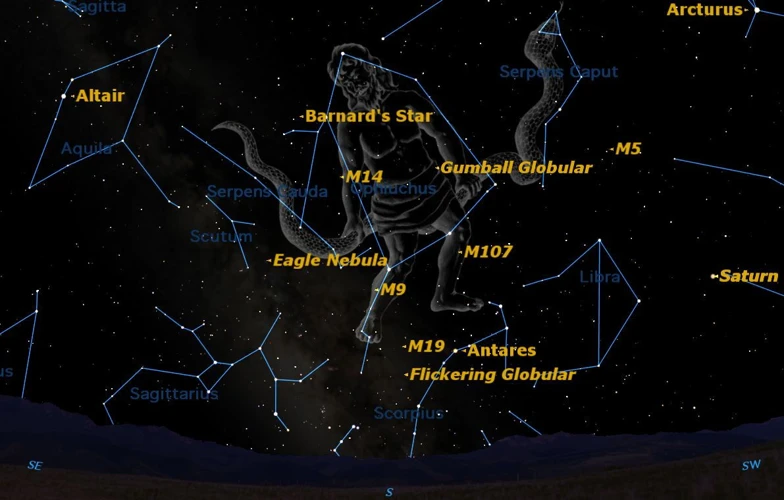
Astrology, a complex and diverse field, encompasses a deep understanding of celestial bodies and their influence on human lives. Astrology is the study of how the positions and movements of stars, planets, and other celestial objects can shape and impact our personalities, relationships, and even our future. Throughout history, different cultures have developed their own unique systems of astrology, each with its own set of beliefs and practices. By examining birth charts, planetary alignments, and the relationships between celestial bodies, astrologers can provide insights into various aspects of our lives, including love, career, and personal growth. Whether you’re intrigued by the personality traits associated with each zodiac sign or curious about the origins of constellations and their symbolism, astrology offers a mesmerizing glimpse into the interconnectedness of the universe. Let’s dive deeper into the fascinating realms of Western, Vedic, and Chinese astrology to unveil the wonders that lie beyond the stars.
Definition of Astrology
Astrology, at its core, is a belief system and a method of divination that seeks to understand and interpret the influence of celestial bodies on human lives. It is based on the premise that there is a deep connection between the positions and movements of the stars, planets, and other celestial objects, and the events and characteristics of individuals and society as a whole. Astrologers analyze the positioning of these celestial bodies at the time of a person’s birth to create a birth chart or horoscope, which serves as a map of their life’s potential and provides insights into their personality traits, relationships, and future experiences. This ancient practice has been passed down through generations and continues to be an integral part of many cultures and belief systems worldwide. By studying the intricate dance of the cosmos, astrology offers a unique lens through which we can gain a deeper understanding of ourselves and our place in the universe. To learn more about the origins and historical significance of astrology, you can explore the fascinating link between astrology and the origins and history of constellations. Additionally, to dive into the mysteries of celestial objects, you may want to explore the composition and origin of comets and their significance in astrological interpretations.
The Cosmic Influence on Human Lives
The concept of the cosmic influence on human lives lies at the heart of astrology. According to astrological beliefs, the celestial bodies and their movements have a profound effect on our personalities, behaviors, and life events. Astrologers believe that the positions of the planets and stars at the time of our birth create a unique energetic blueprint, known as our birth chart. This chart serves as a map of our lives, providing insights into our strengths, weaknesses, and potential challenges.
Astrology holds that each celestial body emits its own unique energy, and as these bodies move and interact with one another, they create dynamic cosmic patterns that shape our experiences. For example, the position of the sun at the time of our birth determines our zodiac sign, which is believed to influence our core personality traits and character. The moon, on the other hand, is associated with our emotions and innermost desires.
The cosmic influence goes beyond just the sun and moon. The positions of other planets, such as Mercury, Venus, Mars, Jupiter, Saturn, Uranus, Neptune, and Pluto, are also taken into account. Different planets are associated with different areas of life and have specific effects on our personalities and experiences. For instance, Venus is linked to love, relationships, and beauty, while Mars represents energy, passion, and assertiveness.
Astrology suggests that by understanding and aligning ourselves with the cosmic energies, we can gain a deeper insight into our life purpose, relationships, and personal growth. It is believed that certain planetary transits or alignments can bring about significant changes or opportunities in our lives. By studying these celestial movements, astrologers can provide guidance and predictions, helping individuals navigate challenges and make the most of favorable cosmic influences.
While some people may be skeptical about the cosmic influence on human lives, astrology continues to be a source of comfort, self-reflection, and guidance for many individuals seeking a deeper understanding of themselves and the world around them. Whether or not one believes in the power of the stars, astrology remains an intriguing and thought-provoking subject that invites us to explore the mysteries of the cosmos and our own place within it.
Western Astrology
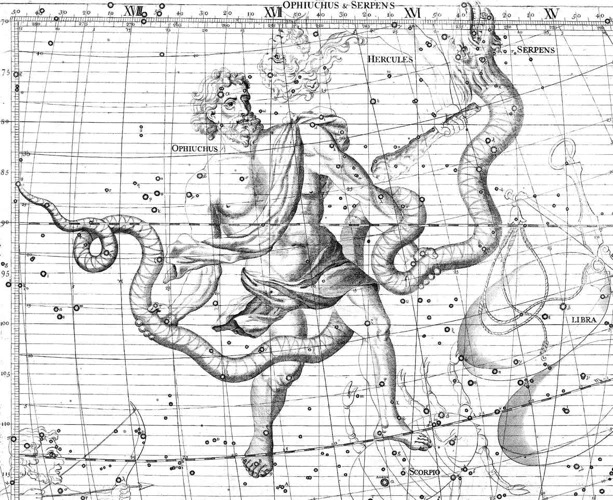
Western astrology, also known as European astrology, is an ancient system that originated in ancient Mesopotamia and later evolved in Greece and Rome. Western astrology relies heavily on the positions of the sun, moon, planets, and other celestial bodies at the moment of a person’s birth to determine their personality traits, life path, and future events. One of the fundamental components of Western astrology is the zodiac system, which divides the sky into twelve equal parts, each associated with a particular constellation or zodiac sign. These zodiac signs, such as Aries, Taurus, and Gemini, are believed to influence an individual’s characteristics and behavior. Additionally, astrological houses and aspects play a significant role in Western astrology, providing further insights into different areas of a person’s life, such as relationships, career, and health. By interpreting birth charts and analyzing planetary movements, Western astrologers offer guidance and predictions based on the alignment of celestial bodies. The rich history and detailed methodologies of Western astrology make it a captivating subject for those seeking self-discovery and a deeper understanding of the universe’s influence on human existence.
History and Origins
The history and origins of Western astrology can be traced back to ancient Mesopotamia, where the earliest known astrological records were discovered on clay tablets dating back to around 2000 BCE. These early astrologers observed the movements of celestial bodies and believed that they held significant influence over human affairs. The knowledge and practices of astrology then spread to ancient Egypt and Greece, where it became intertwined with mythology and astronomy. In Greece, prominent figures such as Ptolemy and Hippocrates made significant contributions to the development of astrology. During the Renaissance, astrology experienced a revival in Europe, with scholars like Johannes Kepler and Galileo Galilei exploring its relationship with astronomy. Vedic astrology, on the other hand, originated in ancient India and is mentioned in sacred texts known as the Vedas. It dates back over 5,000 years and is deeply rooted in Hindu culture. Chinese astrology also boasts a rich history, with its origins dating back to the Han dynasty in 2nd-century BCE. The Chinese zodiac, which is based on a 12-year cycle, played a crucial role in Chinese society, helping determine compatibility, predict fortunes, and guide important decisions. Each system of astrology has its unique historical origins and cultural influences, making them fascinating subjects of study and exploration.
Zodiac Signs and Horoscopes
Zodiac signs play a significant role in Western astrology and are based on the positioning of the sun at the time of an individual’s birth. The zodiac is divided into twelve signs, each representing specific personality traits and characteristics. These signs are Aries, Taurus, Gemini, Cancer, Leo, Virgo, Libra, Scorpio, Sagittarius, Capricorn, Aquarius, and Pisces. Each zodiac sign is associated with one of the four elements: fire, earth, air, or water, which further enhances the interpretation of one’s personality.
Horoscopes, on the other hand, provide astrological predictions and insights based on a person’s zodiac sign. They are like personalized astrological forecasts and can offer guidance in various aspects of life. Horoscopes may include information about love and relationships, career, health, and general life events. Astrologers analyze the positioning of the planets and their alignments to provide predictions and advice tailored to different zodiac signs. People often turn to horoscopes to gain insights into their future and make informed decisions.
In Western astrology, the zodiac signs and horoscopes are interconnected, with each zodiac sign having its own distinct horoscope predictions. Whether you are an adventurous Aries, a nurturing Cancer, or an ambitious Capricorn, exploring your zodiac sign and reading your horoscope can provide valuable insights into your personality, strengths, and challenges. It’s important to note that astrology offers guidance and interpretations rather than absolute predictions, allowing individuals to make informed choices and navigate their lives with a greater sense of self-awareness.
Astrological Houses and Aspects
Astrological houses and aspects play a vital role in Western astrology, providing a detailed framework for interpreting a person’s birth chart. The birth chart consists of twelve houses, each representing a different area of life, such as relationships, career, and spirituality. These houses signify specific aspects of a person’s existence and outline the various areas in which planetary energies manifest in their life. The positioning of planets in these houses and the relationships they form with one another, known as aspects, offer valuable insights into an individual’s personality, strengths, challenges, and potential life experiences. For example, the placement of Mars in the seventh house may indicate a passionate and assertive approach to partnerships. Similarly, a challenging aspect between Saturn and Venus may suggest difficulties in areas related to love and relationships. By analyzing the interactions between planets and houses, astrologers can provide comprehensive and nuanced interpretations of a person’s birth chart, shedding light on their unique journey through life.
Vedic Astrology
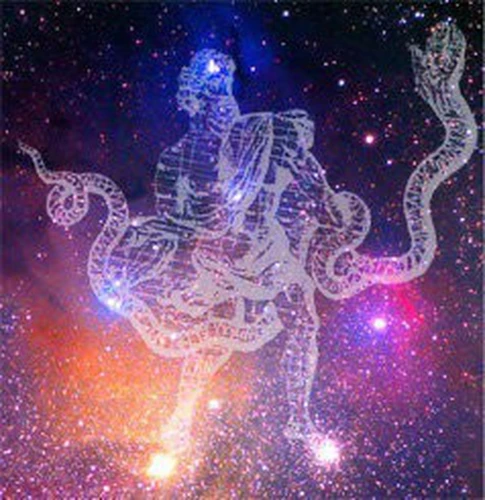
Vedic Astrology, also known as Jyotish, has ancient Indian origins and holds significant importance in Hindu culture. This intricate system of astrology is deeply rooted in Vedic scriptures and involves a profound understanding of cosmic energy and its impact on human lives. At the core of Vedic Astrology are the concepts of Nakshatras and the Rashi system. Nakshatras are lunar mansions that divide the zodiac into 27 equal parts to pinpoint the specific position of the moon at the time of a person’s birth. Each Nakshatra has its own unique qualities and influences certain aspects of an individual’s life. The Rashi system revolves around the 12 zodiac signs, each associated with a specific element and ruling planet. Vedic Astrology offers detailed insights into various aspects of life, ranging from personality traits and compatibility with others to career choices and spiritual growth. Through the use of birth charts and predictive techniques, Vedic Astrology provides a comprehensive understanding of an individual’s past, present, and future, allowing for self-reflection and guidance on life’s journey.
Ancient Indian Origins
The roots of Vedic astrology can be traced back to ancient India, where it originated thousands of years ago. of Vedic astrology can be found in ancient texts such as the Vedas, which are considered to be among the oldest scriptures in the world. Vedic astrology, also known as Jyotish, is deeply rooted in Hindu philosophy and is based on the concept that celestial bodies have a profound influence on human lives and destinies. The ancient sages and seers of India dedicated themselves to studying the movements of the planets, stars, and other celestial bodies to gain insight into the nature of existence and the interconnectedness of all things. They believed that through the precise calculations and interpretations of these celestial movements, one could understand the past, present, and future events in a person’s life. The rich and complex system of Vedic astrology encompasses various techniques, including the use of birth charts, planetary periods (dashas), and astrological remedies (yagyas and gemstone recommendations). It continues to play an integral role in Hindu culture, guiding individuals in making important life decisions, understanding their karma, and seeking spiritual growth. The wisdom and teachings of Vedic astrology have been passed down through generations, contributing to its enduring significance in the lives of millions of people.
Nakshatras and Rashi System
In Vedic Astrology, the Nakshatras and Rashi system are integral components used to interpret and analyze a horoscope. The Nakshatras, also known as lunar mansions, are the 27 divisions of the zodiac that the Moon traverses over the course of a month. Each Nakshatra holds its unique energy and symbolism, influencing various aspects of an individual’s life. They are believed to represent different qualities and characteristics that shape one’s personality traits and life experiences. The Rashi system, on the other hand, refers to the division of the zodiac into twelve equal parts, with each Rashi or sign governing a specific period of time. The Rashi system works in conjunction with the Nakshatras to provide a comprehensive understanding of an individual’s birth chart. By analyzing the placement of planets within specific Nakshatras and Rashis, astrologers can gain deeper insights into an individual’s life path, behavioral patterns, strengths, weaknesses, and potential challenges. Despite its complexity, the Nakshatras and Rashi system are cherished elements of Vedic Astrology, guiding individuals towards self-discovery and personal growth.
The Importance of Vedic Astrology in Hindu Culture
Vedic astrology holds immense significance in Hindu culture and is deeply embedded in its religious and spiritual practices. Here are some key aspects that highlight the importance of Vedic astrology in Hindu culture:
1. Ancient Wisdom: Vedic astrology, also known as Jyotish, has its roots in ancient Indian scriptures called the Vedas. These texts are considered divine revelations and are highly revered in Hinduism. Vedic astrology is seen as a sacred knowledge system that has been passed down through generations, embodying the wisdom and insights of the ancient sages.
2. Karmic Influence: Vedic astrology places a strong emphasis on the concept of karma – the idea that our actions in past lives shape our current circumstances. It is believed that Vedic astrology can provide insights into one’s karmic patterns and help individuals understand the lessons they need to learn in this lifetime. This understanding allows for personal growth and spiritual development through the resolution of past karmic debts.
3. Life Guidance: Vedic astrology serves as a tool for navigating life’s challenges by offering guidance and clarity. It provides a comprehensive analysis of various aspects of an individual’s life, including career, relationships, health, and spiritual growth. By studying the positions of planets at the time of birth, Vedic astrologers can reveal potential obstacles, favorable timings, and suggested remedies to mitigate difficulties.
4. Auspicious Timings and Rituals: Vedic astrology plays a pivotal role in determining auspicious timings for important events and ceremonies in Hindu culture, such as weddings, housewarming ceremonies, and religious festivals. By aligning these occasions with favorable planetary configurations, individuals seek to maximize positive energies and blessings.
5. Divine Connection: Vedic astrology enables individuals to deepen their connection with the divine and align themselves with the cosmic order. It emphasizes the belief that there is a divine intelligence guiding the universe, and by understanding and harmonizing with the planetary energies, individuals can attune themselves to this cosmic intelligence and experience an enhanced sense of purpose and spiritual fulfillment.
In Hindu culture, Vedic astrology serves as a guiding light, offering insights into the intricacies of life and the cosmic forces that shape our destinies. It provides a holistic approach to understanding oneself, one’s life path, and the greater cosmic unfolding, ultimately leading individuals towards spiritual growth and self-realization.
Chinese Astrology
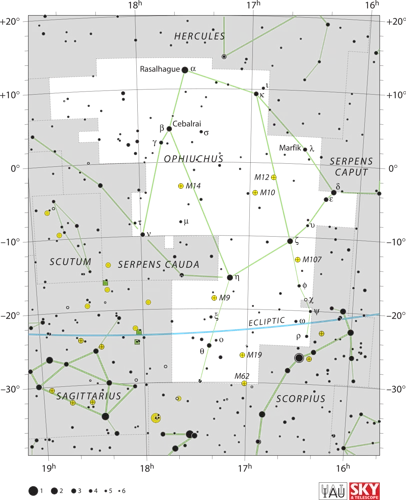
Chinese astrology, also known as the Chinese zodiac, is rooted in ancient Chinese culture and tradition. It is a system that assigns animal signs to individuals based on their birth year, creating a twelve-year cycle. Each year is associated with a specific animal, including the Rat, Ox, Tiger, Rabbit, Dragon, Snake, Horse, Sheep, Monkey, Rooster, Dog, and Pig. Similar to Western astrology, Chinese astrology believes that these animal signs can influence one’s personality traits, compatibility with others, and even future prospects. In addition to the animal signs, Chinese astrology also incorporates the concept of the Five Elements (Wood, Fire, Earth, Metal, and Water), which further influences an individual’s characteristics and destiny. The lunar calendar plays a crucial role in Chinese astrology, and the combination of the animal sign and element associated with one’s birth year can provide a detailed understanding of their personality and life path. Whether seeking compatibility insights or looking to uncover hidden talents, Chinese astrology offers a rich and intricate tapestry of cosmic wisdom to explore.
The Chinese Zodiac
The Chinese Zodiac, also known as Shengxiao, is a unique and captivating system that classifies individuals based on their year of birth. Unlike Western astrology that focuses on the alignment of the stars and planets, the Chinese Zodiac revolves around a 12-year cycle, with each year represented by a specific animal sign. These animal signs are the Rat, Ox, Tiger, Rabbit, Dragon, Snake, Horse, Sheep, Monkey, Rooster, Dog, and Pig. Each animal sign is believed to possess distinct characteristics and qualities that influence a person’s personality, strengths, and weaknesses. The Chinese Zodiac is deeply intertwined with Chinese culture and is used for various purposes, including matchmaking, fortune-telling, and personality analysis. Additionally, each animal sign is also associated with one of the five elements: Wood, Fire, Earth, Metal, and Water, adding another layer of complexity to the system. The Chinese Zodiac offers a fascinating perspective on how the year of one’s birth can shape their life and provides valuable insights into compatibility, fortune, and personal traits. Whether you are a proud Dragon or a loyal Dog, exploring the depths of the Chinese Zodiac can be a fascinating journey into the rich tapestry of Chinese astrology.
The Chinese Five Elements
The Chinese Five Elements, also known as Wu Xing, is a fundamental concept in Chinese astrology and philosophy. These five elements are Wood, Fire, Earth, Metal, and Water, and they represent different aspects of the natural world and human life. Each element is associated with specific qualities, characteristics, and energies that interact and influence one another. Wood represents growth, flexibility, and creativity, while Fire symbolizes passion, energy, and transformation. Earth embodies stability, nurturing, and balance, while Metal represents structure, logic, and discipline. Water embodies adaptability, intuition, and emotional depth.
In Chinese astrology, the Five Elements are not only associated with the seasons but also with the twelve animals of the Chinese zodiac. A cycle of interaction occurs between the elements, creating a dynamic and intricate system of energy flow. For example, Wood feeds Fire, Fire produces Earth, Earth generates Metal, Metal carries Water, and Water nourishes Wood. This cyclical nature reflects the ever-changing and interconnected nature of the universe.
Understanding the qualities and interactions of the Five Elements is crucial for analyzing individual birth charts and assessing compatibility between individuals. Each person’s birth chart is influenced by the presence and balance of these elements, which can provide insights into personality traits, strengths, weaknesses, and even potential life challenges.
The Chinese Five Elements play a significant role not just in astrology but also in various aspects of Chinese culture, including Traditional Chinese Medicine, Feng Shui, and martial arts. By harmonizing the energies of these elements, individuals can seek balance and cultivate a harmonious and prosperous life.
Intricate and profound, the concept of the Chinese Five Elements adds another layer of depth to the rich tapestry of Chinese astrology. Its relevance extends beyond astrology, offering a holistic approach to understanding the interconnectedness of the natural world and human existence.
The Lunar Calendar and Astrological Compatibility
The Lunar Calendar and Astrological Compatibility
The Lunar Calendar plays a significant role in Chinese astrology and its concept of astrological compatibility. The Chinese zodiac is based on a twelve-year cycle, with each year associated with a specific animal sign. However, it is the combination of the animal sign and the lunar calendar that determines astrological compatibility. The lunar calendar follows the cycles of the moon and is divided into months, with each month having specific characteristics and energies.
In Chinese astrology, compatibility between individuals is believed to be influenced by the combination of their animal signs and the lunar calendar month in which they were born. Different animal signs have unique traits and compatibility with other signs. However, the lunar calendar further refines the compatibility analysis by considering the specific month in which individuals are born. This adds an additional layer of complexity and precision to the compatibility assessment.
| Animal Sign | Lunar Calendar Month | Compatibility |
|---|---|---|
| Rat | 1st month | High |
| Tiger | 4th month | Medium |
| Dragon | 7th month | Low |
Comparing Western, Vedic, and Chinese Astrology
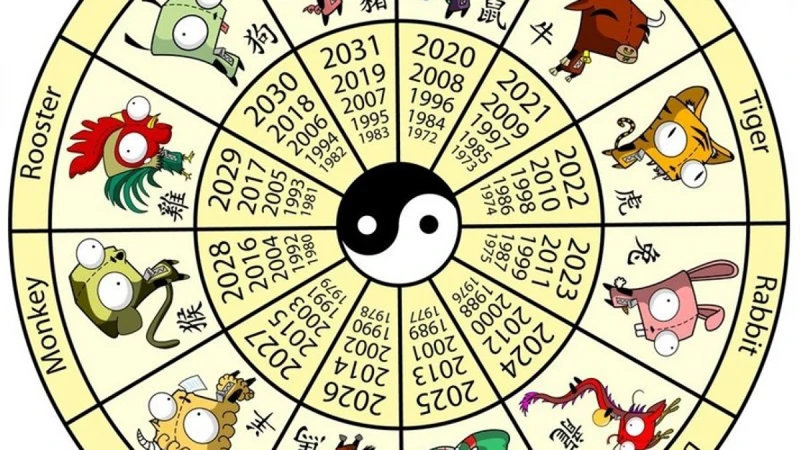
As we explore the intricacies of Western, Vedic, and Chinese astrology, it becomes evident that these three systems possess distinct approaches and philosophies. While Western astrology focuses on the twelve zodiac signs and their positions in the sky, Vedic astrology, originating from India, places significant emphasis on the Nakshatras and the Rashi system. In contrast, Chinese astrology is centered around the Chinese zodiac, which consists of twelve animal signs that rotate on a twelve-year cycle. Each system also incorporates different elements for interpretation – Western astrology relies on astrological houses and aspects, Vedic astrology considers planetary periods and transits, and Chinese astrology assigns importance to the five elements and their interactions. By comparing and contrasting these approaches, we gain a deeper understanding of the diverse ways in which astrology can provide insight into our lives and the world around us.
Different Approaches and Philosophies
Different Approaches and Philosophies play a significant role in distinguishing Western, Vedic, and Chinese astrology from one another. Western astrology, also known as Tropical astrology, is based on the twelve zodiac signs and their alignment with the seasons. It emphasizes individuality and personal identity, focusing on the character traits and behavioral patterns associated with each zodiac sign. Vedic astrology, on the other hand, has a deeper connection with spirituality and karma. It utilizes the sidereal zodiac, which takes into account the position of the stars and constellations. Vedic astrology emphasizes the importance of past lives, destiny, and the spiritual evolution of an individual. Chinese astrology, rooted in Taoist philosophy, is based on the twelve-year cycle of the Chinese zodiac and the five elements. It assigns each year, month, and hour an animal sign and an element. Chinese astrology focuses on the interplay of cosmic forces and energy patterns, aiming to provide a holistic view of a person’s destiny. These diverse approaches and philosophies reveal the richness and complexity of astrology, offering different perspectives on how celestial influences shape our lives.
The Role of Zodiac Signs and Elements
The role of zodiac signs and elements is a fundamental aspect in astrology, influencing the characteristics, behaviors, and personalities associated with individuals born under specific signs. Each zodiac sign falls into one of the four elements: fire, earth, air, or water. These elements represent different qualities and energies that shape the nature of the signs belonging to them. The fire signs (Aries, Leo, and Sagittarius) embody passion, creativity, and enthusiasm, while earth signs (Taurus, Virgo, and Capricorn) are known for their practicality, groundedness, and stability. Air signs (Gemini, Libra, and Aquarius) are characterized by their intellect, communication skills, and adaptability, while water signs (Cancer, Scorpio, and Pisces) are empathetic, intuitive, and deeply emotional.
The zodiac signs themselves, derived from the constellations, also play a significant role in astrology. Each sign represents specific personality traits, strengths, and challenges. For instance, Aries is associated with courage, leadership, and a fast-paced nature, while Taurus embodies determination, loyalty, and a love for stability. Gemini is known for its versatility, curiosity, and sociability, while Cancer is deeply nurturing, intuitive, and sensitive. The roles of zodiac signs extend beyond character traits, influencing compatibility in relationships, preferred career paths, and even health tendencies.
Understanding the role of zodiac signs and elements allows astrologers to interpret birth charts and provide valuable insights into an individual’s strengths, weaknesses, and life experiences. By exploring the unique combinations of zodiac signs and elements within a birth chart, astrologers can offer guidance in various aspects of life, such as relationships, personal growth, and decision-making. So whether you’re a fiery Leo, an earthy Taurus, an airy Aquarius, or a watery Cancer, astrology unravels the intricate roles that zodiac signs and elements play in shaping who we are and how we navigate the world around us.
Interpreting Birth Charts and Predictive Techniques
Interpreting birth charts and predictive techniques play a crucial role in all three types of astrology: Western, Vedic, and Chinese. Birth charts serve as a snapshot of the celestial positions at the moment of an individual’s birth and provide valuable insights into their personality traits, life events, and potential future outcomes. In Western astrology, also known as natal astrology, the birth chart is constructed based on the exact date, time, and location of an individual’s birth. It consists of twelve houses, each representing different aspects of a person’s life, such as relationships, career, and spirituality. Astrologers analyze the planetary placements within these houses and the angles they form with each other to gain a deeper understanding of a person’s character and life experiences. They also look at aspects, which are the geometric relationships between planets, to determine potential challenges and opportunities in the individual’s life.
In Vedic astrology, birth charts are called Janam Kundali. The Vedic birth chart is divided into twelve houses, similar to Western astrology, and each house indicates specific areas of life. However, Vedic astrology places great emphasis on the lunar nodes, known as Rahu and Ketu, along with other planetary positions. These nodes are seen as karmic indicators, representing past-life experiences and lessons that need to be learned in the present life. Vedic astrologers consider the positions of planets at the time of birth, their relationships with each other, and their placement in different houses to make predictions about the individual’s life path, timing of events, and potential challenges.
In Chinese astrology, birth charts are based on the Chinese zodiac, which consists of twelve animal signs. These signs are determined by the year of birth and provide a broad understanding of an individual’s characteristics and compatibility with others. However, Chinese astrology goes beyond just the zodiac animal sign. It also takes into account the Five Elements (Wood, Fire, Earth, Metal, and Water) and their interactions with the animal signs. The birth chart, known as Ba Zi or Four Pillars of Destiny, involves analyzing the year, month, day, and hour of birth. Chinese astrologers use these elements and their cycles to make predictions about an individual’s personality, career prospects, and love life.
Predictive techniques in all three types of astrology involve examining current planetary transits and progressions to the birth chart. These techniques highlight significant periods of change, opportunities, and potential challenges in an individual’s life. Whether it’s the transit of Saturn in Western astrology, the Dasha system in Vedic astrology, or the interaction between the animal signs and current year in Chinese astrology, these techniques provide valuable insights into the timing and nature of life events. Astrologers use a combination of experience, intuition, and astrological tools to interpret birth charts and predictive techniques, helping individuals gain clarity and guidance in various aspects of their lives.
Conclusion

Conclusion:
In conclusion, exploring the different types of astrology, namely Western, Vedic, and Chinese, allows us to grasp the diverse approaches and philosophies within this ancient art. Western astrology, with its origins in ancient Greece, focuses on zodiac signs and horoscopes, providing personality insights and future predictions. Vedic astrology, deeply rooted in Indian culture, emphasizes nakshatras and the rashi system, offering a comprehensive understanding of one’s life path and destiny. Chinese astrology, rooted in the lunar calendar and the zodiac animal signs, provides a unique perspective on personality traits and compatibility. While each system has its distinct characteristics, they all share the belief that celestial bodies influence human lives. Whether you resonate more with Western, Vedic, or Chinese astrology, the overarching idea remains the same – our lives are interconnected with the cosmic forces around us. So, whether you turn to Vedic astrology to gain insights into your spiritual journey or consult Western astrology for relationship guidance, the diverse world of astrology offers a rich tapestry of wisdom and self-discovery. By understanding and appreciating the different types of astrology, we can deepen our understanding of ourselves, others, and the intricate web of energy that connects us all. So, take a moment to gaze at the stars, ponder the celestial influences, and let astrology guide you on a journey of self-exploration and enlightenment.
Frequently Asked Questions

What is astrology?
Astrology is the study of how celestial bodies, such as stars and planets, influence human behavior and events on Earth. It is based on the belief that there is a connection between the positions of these celestial bodies and various aspects of our lives.
How does astrology work?
Astrology works by analyzing the positions and movements of celestial bodies at the time of a person’s birth. This information is used to create a birth chart or horoscope, which provides insights into an individual’s personality traits, strengths, weaknesses, and potential life events.
What are zodiac signs?
Zodiac signs are twelve astrological divisions based on the position of the Sun at the time of a person’s birth. Each sign represents specific personality traits and characteristics that are believed to shape an individual’s behavior and destiny.
What is the difference between Western and Vedic astrology?
The main difference between Western and Vedic astrology lies in the calculations and techniques used. Western astrology follows the tropical zodiac, while Vedic astrology follows the sidereal zodiac. Additionally, Vedic astrology places a greater emphasis on the Moon’s position and the lunar mansions.
How does Chinese astrology differ from Western astrology?
Chinese astrology is based on a twelve-year cycle represented by animals, known as the Chinese zodiac. Each animal sign is believed to influence a person’s characteristics and destiny. Western astrology, on the other hand, is based on the twelve-month cycle of the Sun’s position, known as the zodiac signs.
Can astrology predict the future?
Astrology is not a definitive tool for predicting the future. However, it can provide insights into potential life events and give guidance on how to navigate certain situations. The interpretation of astrological charts involves considering various factors and influences at play.
What are astrological houses?
Astrological houses are twelve divisions in a birth chart that represent different areas of life, such as career, relationships, and home. Each house represents a specific aspect of an individual’s life and can provide insights into how these areas may manifest or be influenced.
How can I determine my astrological compatibility?
Astrological compatibility is determined by comparing the birth charts of two individuals. By analyzing the placement of planets, aspects, and other factors, astrologers can assess the potential harmony or challenges in a relationship. However, compatibility is not solely determined by astrology and should be considered alongside other factors as well.
Is astrology a science?
Astrology is not considered a scientific discipline in the traditional sense. It does not adhere to the rigorous methodologies or empirical testing required in science. However, astrology has a rich historical and cultural significance and continues to be studied and practiced by many individuals worldwide.
Can astrology help me make important life decisions?
Astrology can offer insights and perspectives that may assist in decision-making. By understanding your strengths, weaknesses, and the potential energies surrounding you, astrology can provide guidance for making informed choices. However, it is important to remember that astrology should be used as a tool rather than the sole basis for decision-making.
References
Frequently Asked Questions

What is the difference between Western, Vedic, and Chinese astrology?
The main difference lies in their origins, cultural influences, and astrological systems utilized. Western astrology is based on the movement of the planets relative to the Earth, Vedic astrology is rooted in ancient Indian texts and focuses on the Zodiac and lunar mansions, while Chinese astrology is based on the lunar calendar and incorporates the Chinese zodiac and five elements.
How do Western astrologers determine zodiac signs?
Western astrology divides the year into twelve equal parts, with each part associated with a specific zodiac sign. The sign is determined by the position of the Sun at the time of an individual’s birth.
What is the significance of nakshatras in Vedic astrology?
Nakshatras are lunar mansions in Vedic astrology that divide the Zodiac into 27 equal parts. They play a crucial role in determining various aspects of an individual’s life, including personality traits, compatibility, and timing of events.
What are the Chinese zodiac animals?
The Chinese zodiac consists of twelve animal signs: Rat, Ox, Tiger, Rabbit, Dragon, Snake, Horse, Sheep, Monkey, Rooster, Dog, and Pig. Each animal is associated with certain personality traits and attributes.
How do the Chinese five elements impact astrology?
The Chinese five elements, which are Wood, Fire, Earth, Metal, and Water, play a vital role in Chinese astrology. These elements are associated with different zodiac signs and cycles, influencing personality traits, compatibility, and overall fortune.
Can Western astrology and Vedic astrology be used together?
Yes, some astrologers combine elements of Western and Vedic astrology to provide a more comprehensive analysis. This helps to incorporate both Western methods and Vedic principles, providing a broader perspective on an individual’s chart.
What is the primary focus of Western astrology?
Western astrology primarily focuses on the Sun sign, which represents an individual’s basic personality traits, strengths, and weaknesses. It also considers the positions of other planets and aspects between them to provide a more detailed analysis.
How does Chinese astrology determine compatibility?
Chinese astrology determines compatibility based on the animal signs of individuals. Certain zodiac signs are considered more compatible with each other, while others may face challenges. It also takes into account the harmony of the five elements associated with the signs.
Which astrological system is most popular in Hindu culture?
Vedic astrology is the most popular and widely practiced astrological system in Hindu culture. It is deeply rooted in ancient Indian traditions and scriptures, and its principles and predictions hold significant importance in Hindu rituals and ceremonies.
Can astrology predict future events accurately?
Astrology provides insights and possibilities based on celestial alignments, but it cannot predict future events with absolute certainty. It can help individuals understand potential trends and influences in their lives, allowing them to make informed choices and decisions.
References
- Astrology in 5 DIFFERENT CULTURES with … – YouTube
- Vedic Astrology vs Western Astrology
- Astrology – What is the Difference between Chinese, Vedic…

